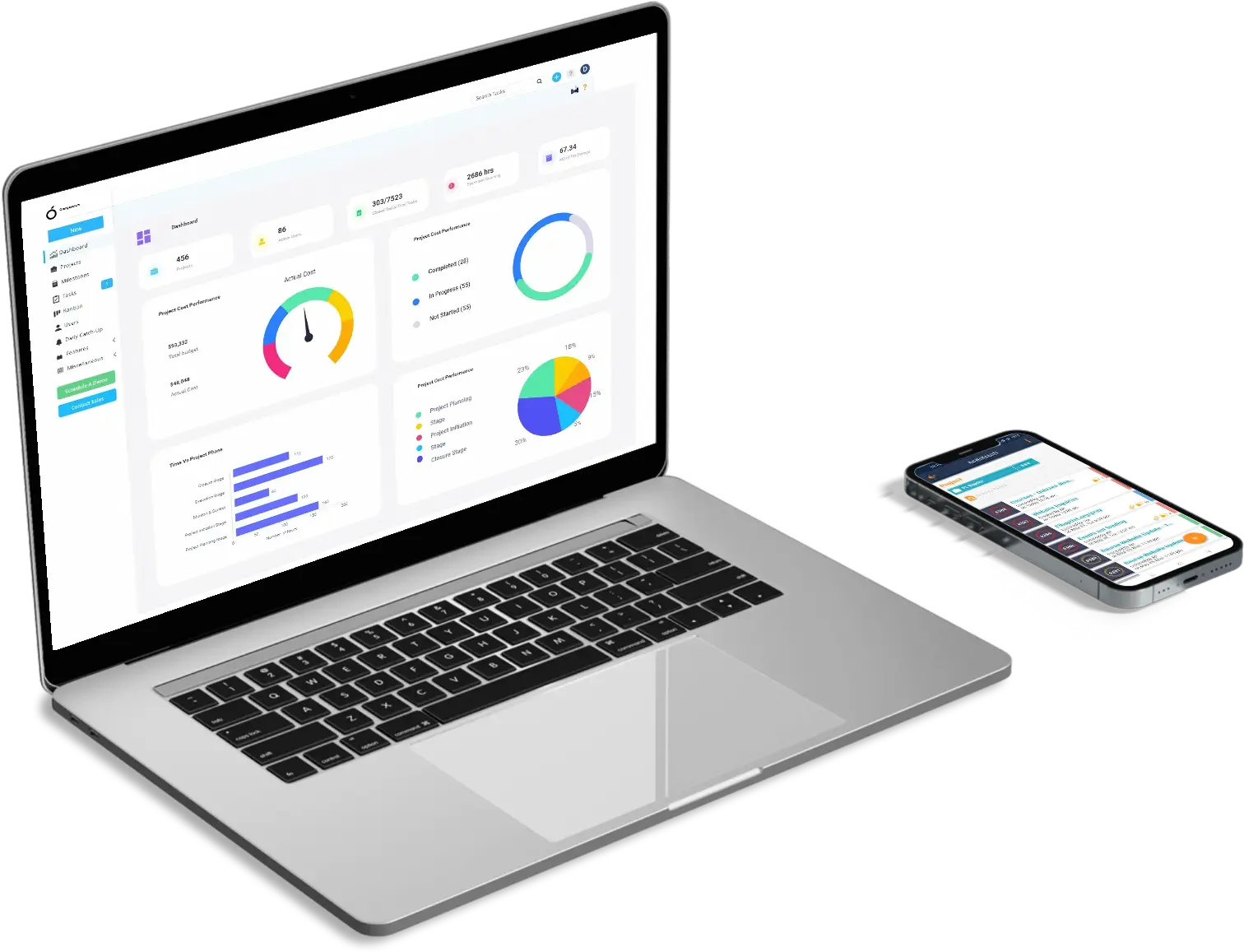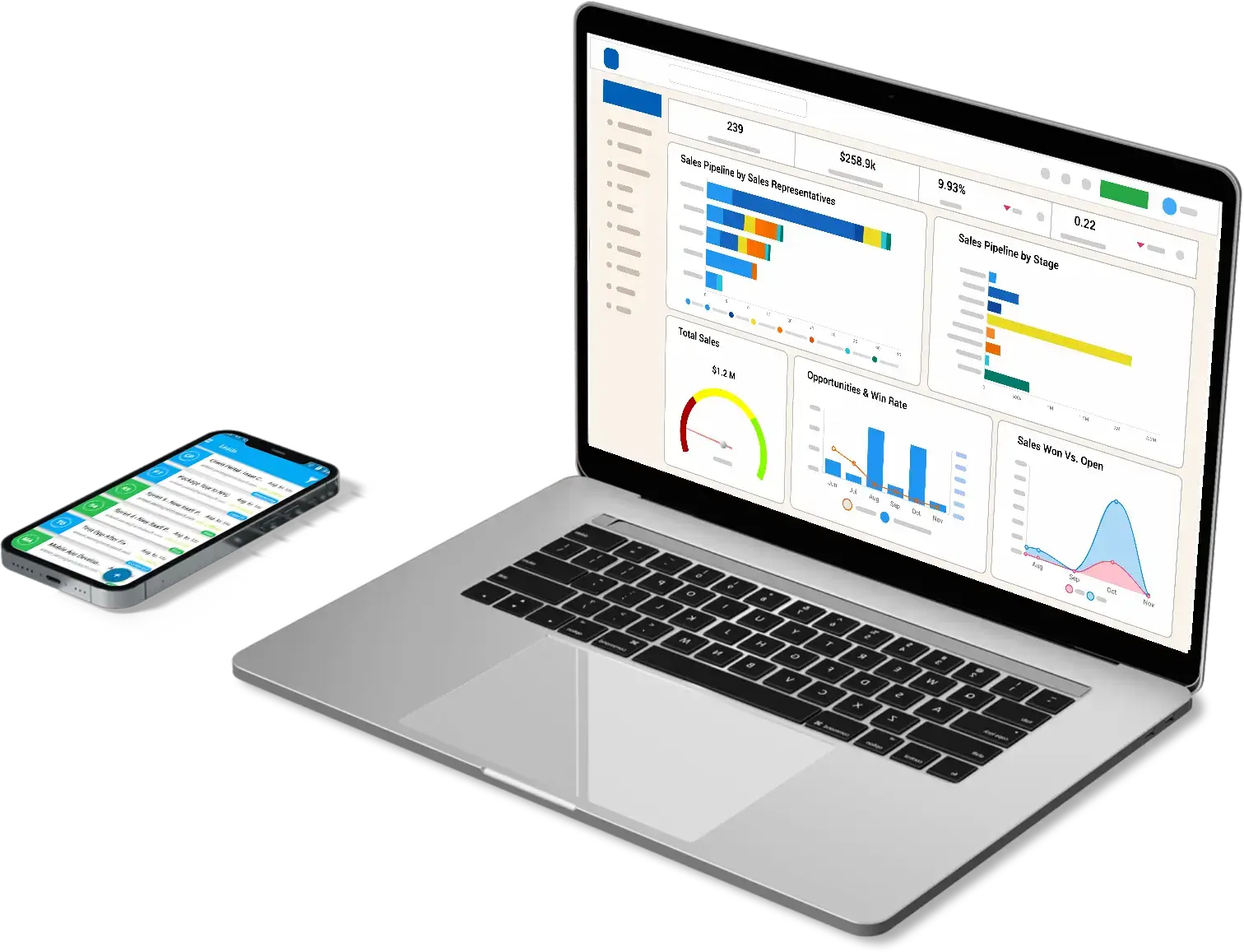

Trusted by 1500+
entrepreneurs and leading brands
Digital Solutions for Your Business Growth
Digital transformation is about using digital technologies to operate businesses and how they engage with customers, partners and suppliers.
It is the process of shifting your business from a traditional, static business model to a dynamic, digital one. The digital transformation of businesses involves reorganizing operations and processes to take advantage of new technologies, market opportunities, and other trends.
It helps leverage new digital technologies to grow your business. AI-driven, data-first company that develops new digital products and services that improve customers’ experiences with their brands.
Businesses no longer need to keep physical inventory or store shelves stocked with products. Everything can be ordered online and delivered to your door within days. Andolasoft scalable digital transformation services is customer-oriented, designed to reduce the cost of your business operations and IT challanges.
Digital Transformation Benefits and Challenges
Digital transformation aim is to make businesses faster, more agile, and more efficient
so they can compete in this fast-changing world.

Shapes the Company’s Brand
Digital transformation goes beyond adding a few digital channels to your existing marketing efforts. Rather, it is a fundamental restructuring of your company’s DNA to make digital the primary driver of your business. The success of every other function in your business depends on how well your digital ecosystem is designed and executed.
Drives Customer Engagement
As more and more of your customers move online, it’s important for your brand to be where they are. Digital transformation encourages more proactive engagement with your customers, both online and offline. This is especially important when there is a problem your customers are experiencing, or a change they want to see in your product or service.
Fuels Innovation
Digital transformation isn’t just about adding new technologies and strategies to your existing business model; it’s about completely reshaping your approach to business. In order to do that, you need a team of people who can think and act like digital natives.
Enables Process Improvement
If you want to truly transform your company with digital transformation, you have to think holistically. It can’t be limited to your technology stack or a select few processes. It has to be applied to the way your team communicates, designs products, and interacts with customers.
Stay ahead of Competitive
With digital transformation, you can stay ahead of the curve and outpace the competition. You’ll have the ability to respond to market trends and customer needs faster than ever before. You’ll also have the ability to scale your business and create new products at a much quicker pace than before.
Digital Transformation Services we Delivered
Digital Transformation Process

Service Industries
Why Andolasoft Digital Transformation Services
We drive our clients towards excellence. We pave the road to success by bridging the gap between business and technology. We deal with consulting, strategy, roadmap to continuous improvement of large transformational projects across diverse industries.
Happy Customers
Dedicated Professionals
Years IT Services Experience

Web & Mobile Apps Delivered
Countries Served
Case study
Our Products

Orangescrm - Simple Project Management Software
Bring clarity to your teams. Organize projects, milestones and tasks in one centralized place.
WakeupSales - Cloud CRM Tool for Small & Medium Businesses
Streamline your sales pipeline by tracking your sales, marketing, and support teams work at one place.

What Our Clients Say

Ready to share your ideas with us to jump-start your project.
Let's DiscussFrequently Asked Questions
Digital transformation refers to the use of digital technology to materially evolve or create new business processes.
Digital transformation efforts can be quite costly, but if implemented correctly, can prove to be a huge cost saver over time. The cost of each individual digital transformation project depends on each initiative’s scale.
The most common technologies businesses use to enable digital transformations:
- Mobile phones and apps
- Cloud computing
- Internet of Things (IoT)
- Artificial intelligence (AI) and machine learning
- Augmented reality and virtual reality (AR/VR)
- Blockchain
To be successful with digital transformation, your organization needs to undergo a continuous, cultural change that will allow your employees, stakeholders, partners, and customers to get comfortable with the new changes. The digital transformation strategy should take into account the barriers that can hinder your growth, the information, processes, technologies, products and services, human aspects, and many more.
Digital transformation is crucial for any business looking to grow and stay ahead of the competition today. Customers expect the same kind of experience across all platforms and environments. Businesses can cater to the dynamic customer needs only through digital transformation.
The four main areas of digital transformation are employees, customers, processes (operations), and products.
The first one is know your customers by understanding their challenges, business objectives, and priorities.
Second is make the case for digital transformation, that is, formulate a vision on where you want to take your customer to.
The third approach is to roll out the enthusiasm right from the top level of the company. When the executive level buys-into your vision, your digital transformation efforts will become successful.
Digital transformation is vital to a company’s success, but it comes along with several obstacles like internal resistance to change, lack of a clear vision on customer’s expectations and digital journey, inadequate tools and processes to gather customer data, outdated technology stack and development processes, and legacy business models.
The key to successful digital transformation is a robust strategy that involves a well-defined business process management, a comprehensive organizational change management strategy, firm support from the executive level, and technological and creative advancements. Besides, it is important to invest in the right resources and processes to attain success with digital transformation efforts.


















